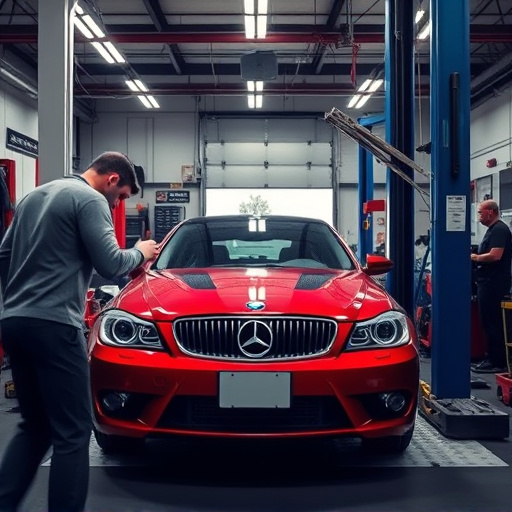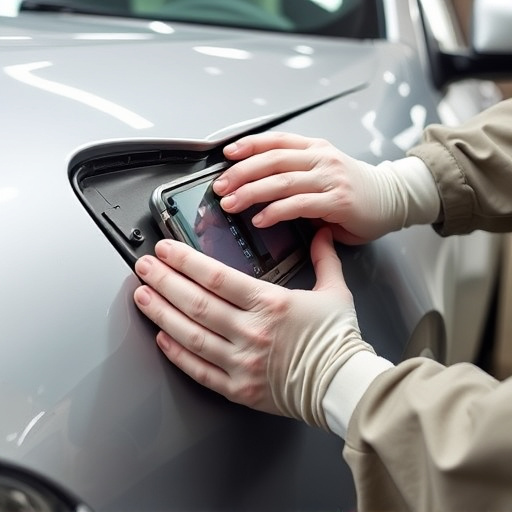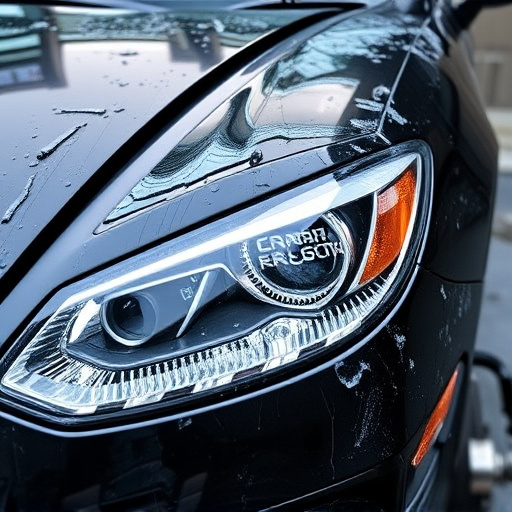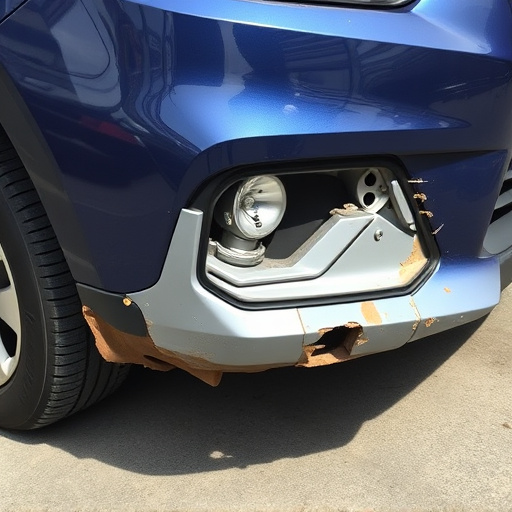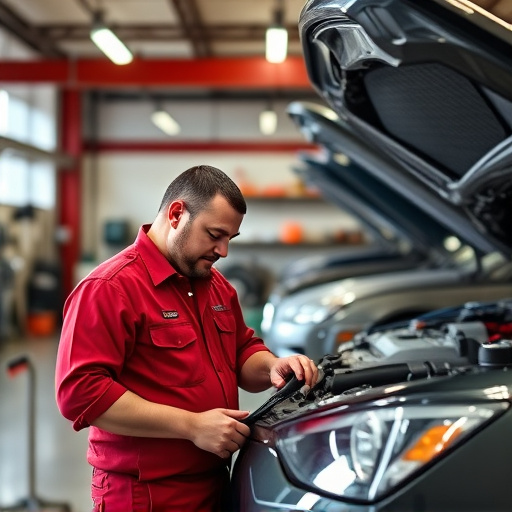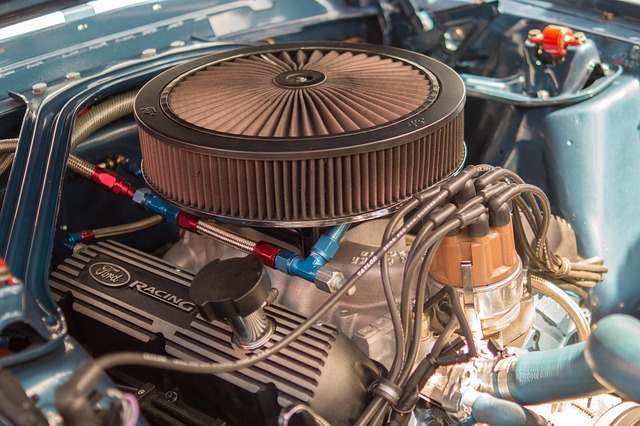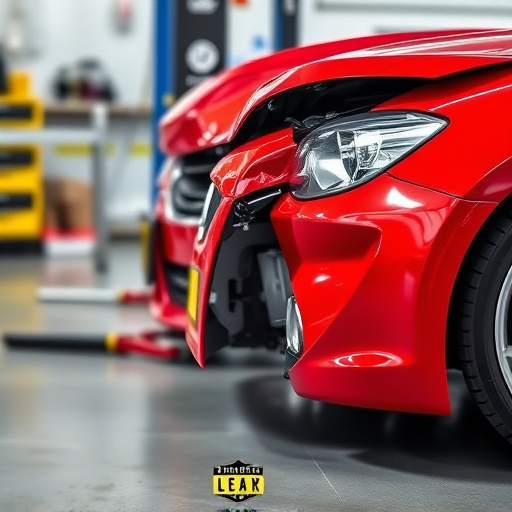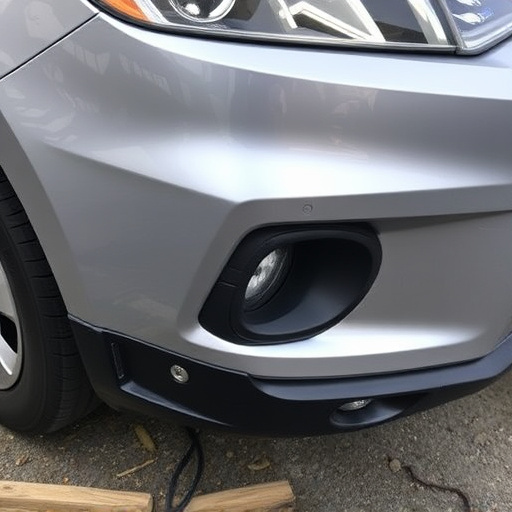Collision repair certification ensures automotive body work meets industry benchmarks, including safety protocols and techniques for various vehicle makes. Certified centers prioritize environmental sustainability through strict waste management, air quality control, and water conservation practices. These programs drive innovation and eco-friendly practices within the auto industry, delivering high-quality repairs while minimizing environmental impact.
“In today’s eco-conscious world, understanding the environmental standards upheld by certified collision centers is paramount. This article explores the crucial aspects of collision repair certification and its impact on sustainable auto repairs. From meeting stringent industry requirements to implementing key environmental standards, certified centers are revolutionizing the automotive landscape. Discover how strict compliance not only benefits the planet but also enhances the quality and reputation of collision repair services.”
- Understanding Collision Repair Certification Requirements
- Key Environmental Standards in Certified Centers
- Benefits of Strict Compliance for Sustainable Auto Repairs
Understanding Collision Repair Certification Requirements
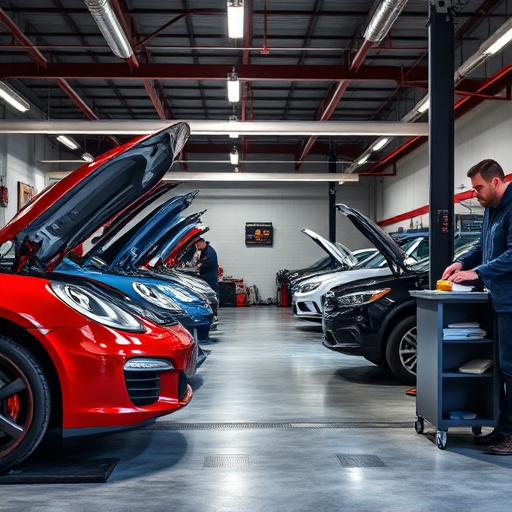
Collision repair certification is a crucial aspect of ensuring that automotive body work meets the highest standards. To achieve this certification, collision centers must adhere to stringent guidelines set by recognized industry authorities. These requirements cover various aspects, from safety protocols during repairs to the use of specialized equipment and materials. The process involves rigorous training for technicians to stay updated with the latest techniques in Mercedes Benz repair, as well as other makes and models, ensuring they can handle even complex fender bender scenarios effectively.
Understanding these certification criteria is essential for consumers too. It guarantees that their vehicles will be restored to pre-accident condition or even better, preserving not just the physical appearance but also the safety features integral to modern cars. With proper certification, collision centers are equipped to perform intricate repairs, ensuring structural integrity and reliability, whether it’s a simple dent removal or a comprehensive Mercedes Benz repair job.
Key Environmental Standards in Certified Centers
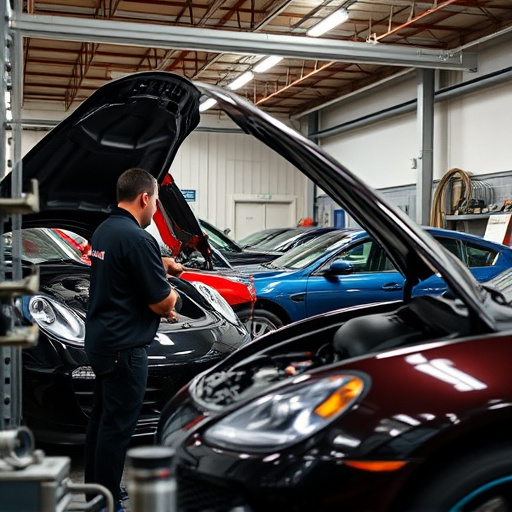
Certified collision centers adhere to stringent environmental standards as part of their collision repair certification. These include strict regulations on waste management, particularly in handling hazardous materials like solvents and paints. Centers must implement proper disposal methods, recycling programs, and containment systems to minimize environmental impact. Additionally, they are required to maintain air quality by controlling emissions from equipment and processes, ensuring compliance with local and national pollution control laws.
Beyond waste management and air quality, these centers prioritize water conservation in their autobody repairs. This involves using water-efficient technologies, such as low-flow fixtures and closed-loop cooling systems, to reduce the strain on local water supplies. Furthermore, certified shops integrate sustainable practices into their vehicle dent repair and auto repair shop operations, including the use of eco-friendly materials and energy-efficient equipment, contributing to a greener automotive industry.
Benefits of Strict Compliance for Sustainable Auto Repairs
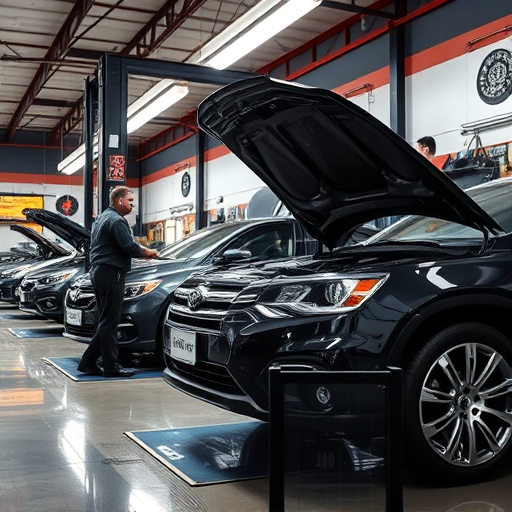
The strict adherence to environmental standards by certified collision centers offers numerous advantages for both the industry and the planet. These centers play a vital role in promoting sustainable auto repairs, ensuring that the processes and materials used minimize ecological impact. By implementing robust environmental protocols, collision repair certification programs encourage the adoption of eco-friendly practices. For instance, these centers often utilize advanced recycling systems to reduce waste, promote the reuse of materials, and minimize the need for new resources.
Furthermore, strict compliance fosters innovation in body shop services. Certified auto collision centers invest in cutting-edge technologies and techniques that enable efficient, clean, and precise repairs. This not only reduces the environmental footprint but also ensures better quality work. In the event of a fender bender or more significant damage, these centers can meticulously restore vehicles to their pre-accident condition while maintaining high ecological standards, making them indispensable in the auto industry’s push towards sustainability.
Collision repair certification isn’t just about adhering to industry standards; it’s a commitment to sustainable and responsible auto repairs. By understanding and implementing key environmental standards, certified collision centers not only protect the planet but also ensure a future where eco-friendly practices become the norm in the automotive industry. The benefits of strict compliance extend far beyond regulatory requirements, fostering a culture of sustainability that benefits both businesses and the environment.

